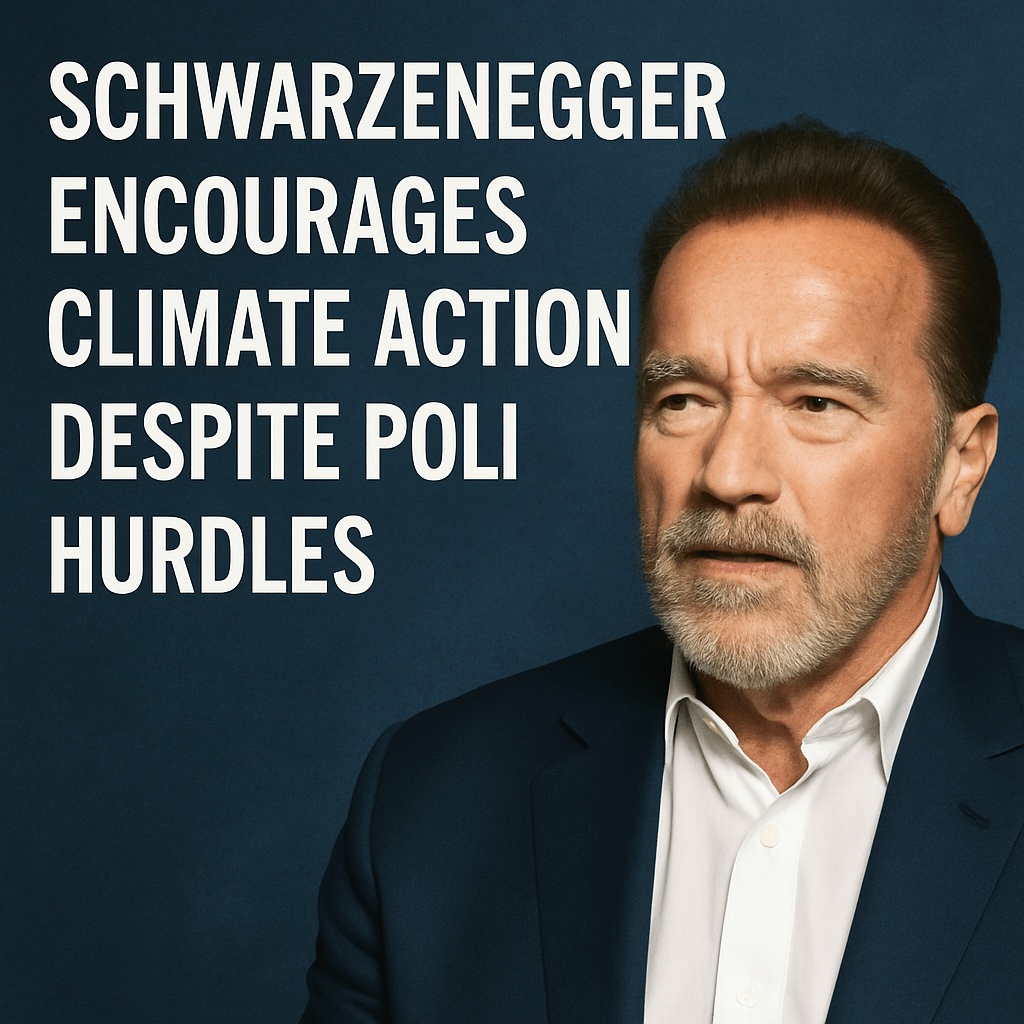Schwarzenegger Encourages Climate Action Despite Political Hurdles

Arnold Schwarzenegger recently delivered a call to action for climate activists, encouraging them to move beyond complaints and work towards tangible solutions for climate change. His remarks came during the Austrian World Summit, an environmental conference he co-organized, and were aimed at energizing those disheartened by the lack of political support at the federal level, particularly during the Trump administration’s tenure.
Addressing Activism in a Challenging Climate
“Stop whining,” Schwarzenegger bluntly advised the audience. “Whining doesn’t change anything. Whining doesn’t build anything.” This statement is particularly relevant given the ongoing debate around environmental regulation in major economies worldwide, where political will can significantly influence climate policy.
Schwarzenegger’s comments reflect a broader sentiment among many environmentalists who feel the weight of structural challenges faced in advocating for climate action. During his speech, he acknowledged the frustrations voiced to him by fellow environmentalists, stating, “What is the point of fighting for a clean environment when the government says climate change is a hoax?” This concern has gained traction, especially in a political landscape where some leaders prioritize fossil fuel development over renewable energy initiatives.
A Historical Perspective on Climate Policy
The former California governor drew upon his tenure in office to illustrate successful grassroots environmental advocacy. In 2007, California enacted stringent emissions regulations that exceeded federal requirements set under President George W. Bush. When the Environmental Protection Agency (EPA) opposed these regulations, Schwarzenegger led California to sue the federal government—an action he proudly recounted.
“Did we whine like little girly men? No, we sued them. We took the fight from court to court,” he stated.
This legal battle ended with the EPA granting California an exception in 2009, under President Barack Obama, allowing the state to maintain its progressive environmental regulations.
Empowering Collective Action
Schwarzenegger emphasized that meaningful climate action does not solely rest with elected officials but can arise from community initiatives. Examples included how mayors can advocate for electric bus fleets, CEOs can lead corporate sustainability efforts, and local schools can implement solar energy solutions.
As the world grapples with climate issues exacerbated by political inertia, activists are increasingly called to engage at local levels. Studies show that localized efforts can lead to significant greenhouse gas reductions while fostering a sense of community and shared purpose among citizens.
Current Climate Policies and Global Responses
In the aftermath of the Trump administration’s deregulations—characterized by reduced spending on green initiatives and an emphasis on expanding fossil fuel extraction on federal lands—the landscape of U.S. climate policy remains complex. With President Biden’s administration now in place, there is renewed focus on reestablishing climate commitments, including rejoining international agreements like the Paris Accord and ramping up investment in renewable energy technologies.
Experts suggest that while the political framework is essential, the impact of grassroots movements remains pivotal. David Roberts, a noted environmental policy thinker, argues that local movements can create pressure that transcends political barriers, driving sustainable practices that can eventually lead to systemic change at higher levels of government.
A Call for Resilience and Responsibility
Schwarzenegger’s concluding thoughts resonated beyond governmental action: “You don’t need to be the president to be a hero. You just need to care and get off your butts and get to work.” This remark serves as an encouragement not only for environmental activists but for anyone motivated to play a part in tackling pressing global issues.
As climate change remains a significant challenge, the need for collective action and individual initiative becomes increasingly apparent. By prioritizing grassroots collaboration and empowering local leaders, advocates may find renewed motivation in their quest for a sustainable future.